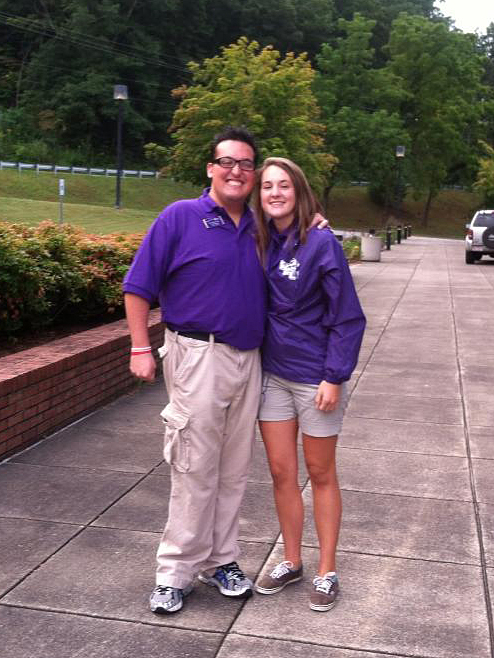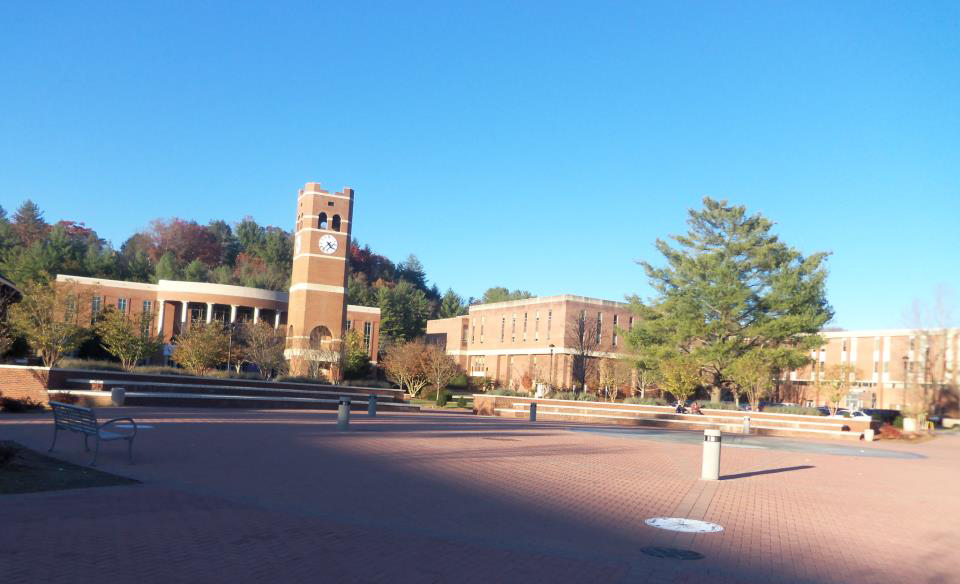ADA Blog – Inclusive Post-secondary Education
By Kenneth Kelty
 Kenneth Kelty, wearing Western Carolina University (WCU) purple, hugs a friend
Kenneth Kelty, wearing Western Carolina University (WCU) purple, hugs a friend
My name is Kenneth Kelty, and I am a motivational public speaker and author who writes about my life with autism and inclusion in the community. I do advocate for the broader disability community as well. I have written several blogs and manage my own public Facebook for people to follow my story and to promote advocacy. I am also a member of The NC Empowerment Network (NCEN) through the NC Council on Developmental Disabilities (NCCDD).
The ADA works with other federal laws to strengthen the rights of people with disabilities. Since the 2004 reauthorizing of the Individuals with Disabilities Education Act (IDEA), people with disabilities have more opportunities. Students with intellectual and other developmental disabilities (I/DD) now have an opportunity to have an inclusive post-secondary education and learn alongside their typically developing peers.
Before the reauthorization in 2004, the only educational option after high school was compensatory education at a community college in a segregated setting with limited opportunities to learn and grow along with age-appropriate, typical peers. Work placement for people with disabilities existed usually where the only options were wiping down tables, cleaning or food service work.  A photo of the brick buildings, with a clock tower in the foreground, on the Western Carolina University campusSince 2012, inclusive post-secondary education opportunities for students with disabilities are becoming more and more available across the country, and students with disabilities can look forward to going to college just as their typically developing peers.
A photo of the brick buildings, with a clock tower in the foreground, on the Western Carolina University campusSince 2012, inclusive post-secondary education opportunities for students with disabilities are becoming more and more available across the country, and students with disabilities can look forward to going to college just as their typically developing peers.
Western Carolina University is one of the first universities in the country to have an inclusive post-secondary education program for students with I/DD to come and gain a real college experience.
The WCU University Participant (UP) Program was one of the first inclusion programs in the country for students with intellectual disabilities. It began in the fall of 2007, and the program was started by a graduate student, Dr. Kelly Kelley who challenged her professor to not just teach about a special program, but to develop it and to turn it into a reality. Over the years, the UP Program has helped post-secondary education programs begin at colleges and universities across the country and has paved the way for inclusion and seeing beyond the label.
Contact Information: [email protected]